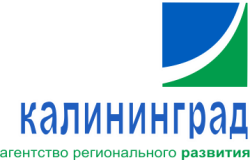 The non-profit organization "Regional Economic Development Agency " was established in 1999.
The non-profit organization "Regional Economic Development Agency " was established in 1999.
Employees of the Agency are a team of qualified experts from various areas of specialization. We have also developed contacts with an extensive network of freelance experts.
Since 2007, ARER is a member of the National Association of Investment and Development Agencies (NAAIR).
Among the main activities of the Agency are development of business plans for investment projects, elaboration of strategies and programmes for the development of municipalities of the Kaliningrad region, as well as comprehensive support for international projects within the framework of cross-border cooperation programmes. More details about these and other aspects of our work can be found in the "Services" section.
Our approach to this work is based on the assumption that the strategies and programmes of social and economic development of municipalities elaborated with the assistance of our experts are not documents for the sake of documents, but a real working tool for the municipality's governing bodies, which the latter will be using as guidelines in their work.
In view of this, these documents cannot be solely the result of work performed by external experts (otherwise they will not have good connection with the real state of affairs in the municipality). Elaboration of the strategy and the programme of a municipality implies active involvement in this work of representatives of all key units of municipal administration.
The working process usually includes several basic stages:
The time required to prepare an application depends on a number of factors. Here are the key aspects one should consider:
Thus, preparation of the initial project application package for implementation of an international project may take 1-3 months.
Judging from the experience of the past cross-border cooperation programmes, project applications are considered in the course of 2-3 months from the deadline for application submission. In case an application is approved, the applicants in close contact with representatives of the programme implement revision of the application (duration of this phase largely depends on the nature and significance of the changes to be introduced in the application package, and may constitute a period of up to several months). The time frame can be predicted with better precision after the call for project applications is announced.
Thus, the period from the moment of application submission until the start of project implementation may last 4-8 months.
As a rule, there is a minimum requirement to prepare 2 interim reports and 1 final report within the project. Besides, in case 4 months has elapsed since the last date covered by the previously submitted report, an additional narrative report (in an abridged format) is submitted to reflect the progress of implementation of project activities. The exact rules of reporting are set out in the documentation of the corresponding cross-border cooperation programme.
The duration of preparation of project reports depends on the good organization of teamwork between the beneficiary and project partners, as well as on the timely and systematic aggregation of information during the reporting period. It should be noted that the official language of the cross-border cooperation programmes is English, and as a result, it is necessary to make allowance for a sufficient time reserve for translation (if not all representatives of the project partners know English to the required degree).
Interim reports include narrative and financial parts. Preparation of the financial report is the most time-consuming activity. Four-monthly report represents only a narrative section (with a limited number of tables reflecting contracts concluded within the project).
It must be noted that, as a rule, submission of reports subsequently transforms into a follow-up and revision phase based on the comments received from the programme managing body (this phase may take quite a long time in some cases).
Thus, initial preparation of a 4-month report may take 1-3 weeks (with subsequent follow-up and revision of nearly 1 month); initial preparation of an interim report – 1-1.5 months (with subsequent follow-up and revision over the course of 2-3 months).
The work with customers usually includes four main stages
Meeting with the potential customer, preliminary discussion of the general parameters of the forthcoming work.
Detailed examination of the issue, clarification of the details from the customer, decision to start the work.
Execution of the planned scope of work, clarification of details from the customer, presentation of the results of the work.
Finalization based on customer's comments, approval of the final version, delivery of work results.
Copyright © 2017 Regional Economic Development Agency